Apr 2, 2024 12:59 PM
Saxophonist, Sonic Explorer Casey Benjamin Dies at 45
Casey Benjamin, the alto saxophonist, vocalist, keyboardist and producer who stamped his distinctive sounds on the…
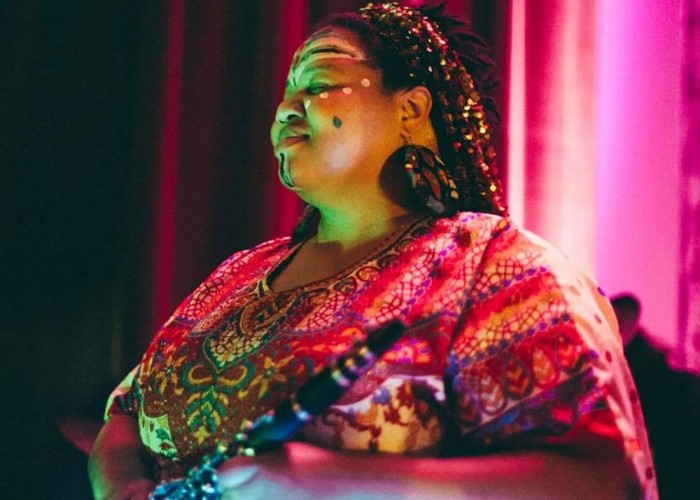
The performers in Angel Bat Dawid’s Cosmic Love Arkestra include elders of the Chicago jazz scene, who the composer said “are very important to me.”
(Photo: Vino Taylor)A new “cosmic love opera” based on the biblical Song Of Solomon and featuring legendary free-jazz musicians is set to be performed for the first time in Chicago.
“I always loved the Song Of Solomon,” said composer and clarinetist Angel Bat Dawid, who runs Hyde Park Records on the city’s Southside and has toured with International Anthem’s Ben Lamar Gay. “It’s the most beautiful display of love. This was the first part of the Bible where I had an identity as a Black woman. There’s a verse where it says: ‘I am Black and I am comely.’ I’ve always been drawn to it for that.”
The show is being performed April 21 at cultural center Co-Prosperity Sphere in Chicago’s Bridgeport neighborhood; the show will be streamed live on Lumpen WLPN.
Being deep in Chicago’s jazz scene made it easy for Bat Dawid to pull together an enviable cast. Her leads are “amazing vocalist” Cher Jey and Marvin Tate. “He’s a phenomenal Chicago poet and performer, but I wanted different dimensions, so I also have two dancers and a pair of 1940s marionettes,” Bat Dawid said. “It’s classically written, but I have different instrumentation, so you’ll think it’s jazz. I have a violin, but I have a tenor sax, clarinet, alto sax, and it’s intergenerational. My Cosmic Love Arkestra is made up of some elders who are very important to me.”
Musicians on board include instrumentalist Eliel Sherman (who travels with the Art Ensemble of Chicago as its sound engineer), and Sun Ra percussionist Avreeayl Ra (whose father played with early iterations of the Arkestra), along with members of the Junius Paul Quartet.
While the score is classical and written out, the percussion will be improvised.
“Even though I’ve got quite a structured piece, there’s all this avant-garde on top,” the composer said “I’ve tried to meld these jazz, classical and free traditions. I don’t know what you call it—neo-classical? Let’s just call it great Black music, because it’s going to be all Black performers playing it, too.”
Bat Dawid studied clarinet at The Moody Bible Institute, a small college with “an excellent” music program, before transferring to music education at Roosevelt University, where she realized that teaching wasn’t for her, either.
“I just got no love back then, no support. My parents believed in me, but I had to go through a lot building my confidence,” Bat Dawid said. “If I’d listened to everybody else I’d have stopped playing clarinet, because nobody was really behind me.”
So, she left the education track, got a job and kept playing on the side. But in 2014, she decided to take a leap into the unknown and “just be an artist, live off my savings for a year.”
“If I hadn’t done that I would not be here now,” Bat Dawid said. “That year opened up everything for me. I made a decision to take care of the music, and I’m happier for it.”
Bat Dawid’s interest in opera predates that year by some time, though.
“The reason I became a musician was because of [the 1984 film] Amadeus. When I was four years old, my dad took us to go see it,” she said. “There’s this one part where he’s a little boy playing the violin, and I was like ‘That’s like me, I’m a kid! I wanna do that!’”
Writing came easily.
“Just like any opera, you’re gonna start with the libretto,” she said. “You’ve got to have a text to work, and the text was right there [in the Bible]. As I was reading it, the music was coming to me for each line. I started to play it on the piano, started to sing some, then I saw the whole structure: seven acts. Then all the visuals came to my head.”
The clarinetist’s Song Of Solomon takes an intergalactic perspective. “I like auto-mythology, making my own myths. And my interpretation is that the groom and the bride-queen are lovers,” she explained. “She gets captured and taken somewhere she’s oppressed, because of her skin color. His goal is to scatter the galaxy, looking for his bride. It resonates a lot with my own story as an African-American woman and with the diaspora. But it will also resonate with a lot of people who’ve been overlooked. He could have any woman in the galaxy—but it’s this woman he wants, this Black woman. I really want to celebrate her. I want people to walk away thinking, without me spoon-feeding it to them. Let’s use this mythology to take it there.” DB
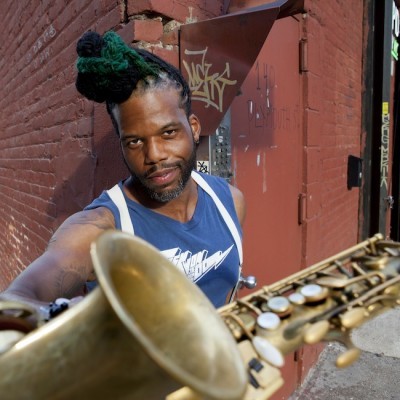
Benjamin possessed a fluid, round sound on the alto saxophone, and he was often most recognizable by the layers of electronic effects that he put onto the instrument.
Apr 2, 2024 12:59 PM
Casey Benjamin, the alto saxophonist, vocalist, keyboardist and producer who stamped his distinctive sounds on the…
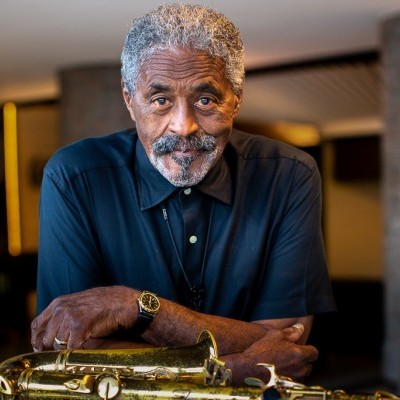
“He’s constructing intelligent musical sentences that connect seamlessly, which is the most important part of linear playing,” Charles McPherson said of alto saxophonist Sonny Red.
Feb 27, 2024 1:40 PM
“I might not have felt this way 30 to 40 years ago, but I’ve reached a point where I can hear value in what people…
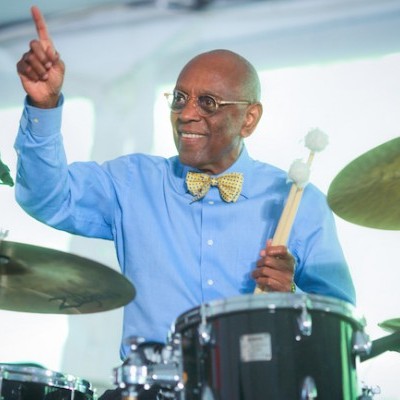
Albert “Tootie” Heath (1935–2024) followed in the tradition of drummer Kenny Clarke, his idol.
Apr 5, 2024 10:28 AM
Albert “Tootie” Heath, a drummer of impeccable taste and time who was the youngest of three jazz-legend brothers…
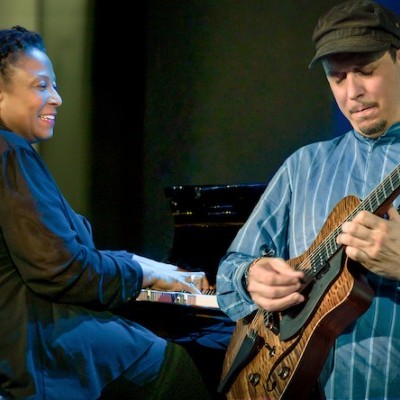
“Both of us are quite grounded in the craft, the tradition and the harmonic sense,” Rosenwinkel said of his experience playing with Allen. “Yet I felt we shared something mystical as well.”
Mar 12, 2024 11:42 AM
“There are a few musicians you hear where, as somebody once said, the molecules in the room change. Geri was one of…
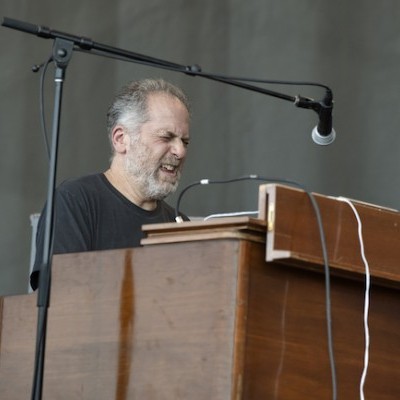
Larry Goldings’ versatility keeps him in high demand as a leader, collaborator and sideman.
Feb 21, 2024 10:45 AM
Are you having any fun? Larry Goldings certainly is. Consider just two recent examples:
Scene 1: “If anyone had…